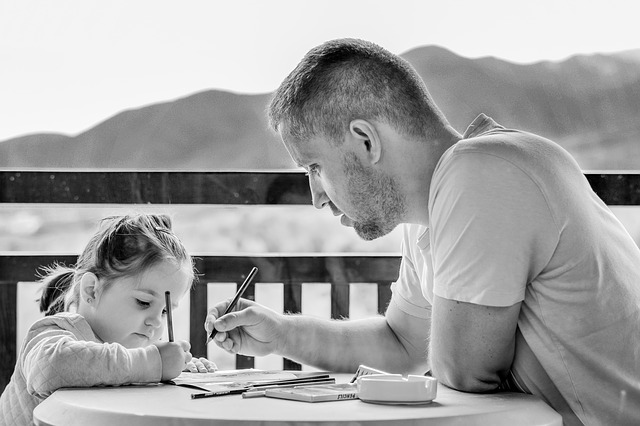 My kids have always been very independent, proud to show how they can do things “all by myself.” Or as my daughter used to say, “All my byself.” While I love supporting their independence, there are times when we encounter a task or challenge that is beyond their developmental capability. Unfortunately, I find that if I even hint at helping them, they become even more frustrated or upset and often tantrums ensue.
My kids have always been very independent, proud to show how they can do things “all by myself.” Or as my daughter used to say, “All my byself.” While I love supporting their independence, there are times when we encounter a task or challenge that is beyond their developmental capability. Unfortunately, I find that if I even hint at helping them, they become even more frustrated or upset and often tantrums ensue.
What I’m starting to realize is the word “help” can be a trigger for them. Usually, I’m offering it because we are already running fifteen minutes late and I cannot wait another second, watching them struggle defiantly or dejectedly. I wonder if the word carries a sense of shame or if they think this somehow implies that I see them as incapable. That may be too advanced a perspective for a little one to have, and it’s certainly not why I’m offering, but whatever the reason, they don’t like to accept my help.
I know I too am guilty of not wanting to ask for help and even refusing it in some instances. Maybe I am inadvertently role modeling this behavior for them. Regardless of the cause, all I know is if I use the phrase, “Do you need some help?” or “Here, let mommy help you real quick,” all pandemonium can break loose.
So I’ve been cultivating some clever phrases that essentially mean “let me help you” but avoid using the triggering “help” word. Here are some sayings that have been effective in my household:
“Want me to take a look?”
This seems to be a gentler version of, I can help. Using the word look implies that you’re playing a passive role, you’re not taking control of the project. It also still gives them a choice in the matter, since it’s in the form of a question.
“Let’s see what’s going on.”
This phrase, by using the word “let’s”, implies we are going to work on the task together, and again “see” indicates I’m using my eyes, not my hands. It signifies that I’m not going to take the object away from them.
“Let’s work on this together.”
Again this is similar to the previous one, showing a desire to tackle the problem together as a team.
“That looks frustrating/tricky/difficult. Want to tell me what’s happening?”
This phrase acknowledges their struggle, empathizes with them, and then encourages them to have a voice. It invites them to practice using their words to express why the task isn’t working and opens the door for collaboration.
Sometimes no phrase is needed, and I’ll just sit next to them or nearby.
This physical presence uses nonverbal cues to indicate I’m here and available without assuming ownership. Often times, when I try this with my daughter, she will then turn to me and ask for help or want to show me why the project isn’t working.
What phrases have worked for you? Who knows, maybe I’ll share this post with my husband to see if they work for me, too. Happy toddlering!

















